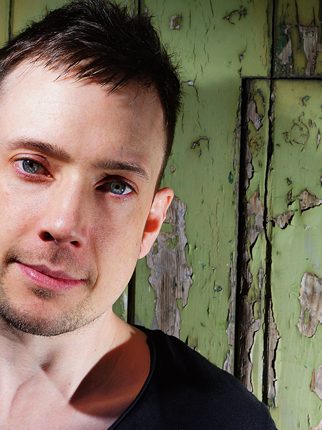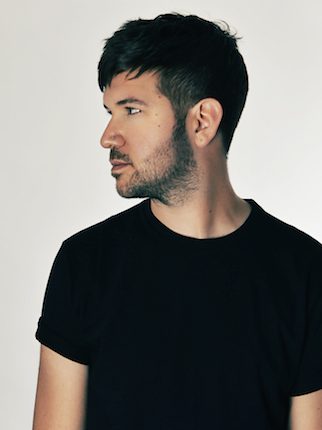A Cappella: Francesca Lombardo
While some artists have become international sensations overnight, most have spent years in the studio and on the road, honing their skills and building their repertoire, before making a splash on the global scene. We discuss that process and the tools of the trade in our A Cappella series.

How does your music creation process begin?
I usually start by buying candles, incense, water, chocolate—or anything that will get me going—and make my way to my studio. I always walk to my studio from home, and I need to go through a couple of parks. I try and watch the plants and trees around me. I observe and breathe in everything around me and try to take everything in. I spend the first few hours by not allowing myself to write new material. I maybe play around and do other things until I cannot wait any longer. Depending on what I am writing, I have different creative processes. Sometimes, I write music just for myself, and that’s when I get my true self out. I usually think of a concept and put it into music. It could be something that is happening to me in that particular moment of my life, or just a tree that I saw on the way to the studio. I have many ways to start a track, by making a groove or getting inspired by a synth sound. Sometimes, it can be a piano melody that I write by starting playing piano, and sometimes vocals or lyrics.
How’d you get your first club gig?
I started to DJ for fun in my house about 16 years ago. I used to play together with another girl, always back to back; she was my neighbor. We were having long b2b sessions in the house every day, and it was so much fun. We played techno back then, and we were blending two different styles. I was acid, and she had more of a funky style. There was a record shop in Kentish Town, London, where they sold the best records at the time for the style I was playing, and it was called Access All Areas. I used to go there several times a week to buy records. One day the owner, who also became a friend, asked me if I wanted to play there on Saturday afternoons, and I said yes. I had never played in front of people, and Saturdays were extremely busy in the shop. I then started to play, and on my second time, I was asked by a promoter (who was there to bring flyers) if I wanted to play at his party near London Bridge in the venue today called Great Suffolk Street Warehouse. It was a girl-DJ-only party, and every room had a different style of music, including techno, electro, dub and house. I was so nervous, but I immediately decided that this was something I would want to do again very soon.
What factors might compel producers to go the ghost-producer route? What’s your take on ghost production?
I am not so sure what factors might compel someone to go to the ghost producer route. It could be money, or maybe they love to produce so much that they need to spend more time in the studio, or maybe they just want to help a friend? I personally think that ghost production is a little sad, and that it’s something that should be banned. But that is, of course, impossible, as no one will know. The reason for this is that I wish the real producer would benefit from the music. If you have a great ear, though, most of the time you can hear who is ghost producing for whom. I would rather co-produce than ghost produce.
Self-taught vs. mentor vs. schooling; how did you acquire your skills?
I always studied, and sometimes I taught myself by watching tutorials or reading, but most of the things I know I was told. I had the luck of working with many engineers and producers in London. I worked at Funky Junk for a couple of years, too, looking after the second-hand equipment sales, and that place gave me as much knowledge as I feel a three-year sound engineering diploma course could do. I took a music technology diploma in London at one point in my life, and also a production module when I was doing a vocal performance degree course. But I still think the people I worked with were the ones who taught me the most.
Does the ease and global access of the internet—via Beatport, iTunes, torrents—cheapen the value of music?
Unfortunately, the value of having great music has been drastically cheapened down since the internet made everything available for everyone. A few factors contribute to this fact, in my opinion. The main one is that illegal downloads flood the internet with poor-quality music formats. Also, the legal avenues—like Beatport, iTunes and other online shops—cheapen the music-searching experience by making it too easy to find all the music, just by clicking a button, making it easy for everyone to access everything at any time. Before the internet, finding music required a big effort, and you would actually have to go to the store and listen through piles of records to find the hidden gems.
When I used to go to the record shop—and I still do every week, to this day—your choice is more limited, and you would find less quantity but in general an all-around higher quality of music, because the people working in the store have already made the initial selection. Actually, the very first selection is now made by the fact that, unlike releasing something digitally which is for free and does not require much train of thought, releasing on vinyl still represents some monetary investment because of the production costs, and that will often create the first filter for the quality of music. I find myself buying more music now because I have everything available with a click of my finger, but I feel the joy of the music-searching experience has been cheapened.
Follow Francesca Lombardo on Facebook | Twitter





